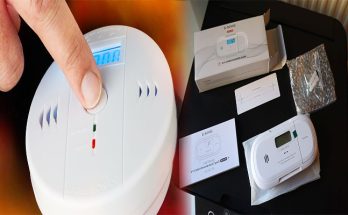 The U.S. Fireplace Administration (USFA) reported 1,448 residential hearth fatalities between January 1 and July 31, 2013. The USFA gleans this information solely from U.S. news media stories, and estimates this quantity is about one third to at least one half of the actual residential fireplace fatalities occurring every year. We not too long ago published an article titled Hearth Security Recommendations on the right way to prevent fires and stay safe round hearth hazards. Whereas all of us try to do what we are able to to forestall residential fires, the simplest, simplest action we can take is to put in smoke detectors in every room of our dwelling.
The U.S. Fireplace Administration (USFA) reported 1,448 residential hearth fatalities between January 1 and July 31, 2013. The USFA gleans this information solely from U.S. news media stories, and estimates this quantity is about one third to at least one half of the actual residential fireplace fatalities occurring every year. We not too long ago published an article titled Hearth Security Recommendations on the right way to prevent fires and stay safe round hearth hazards. Whereas all of us try to do what we are able to to forestall residential fires, the simplest, simplest action we can take is to put in smoke detectors in every room of our dwelling.
As of January 2016, 30 states have enacted statutes relating to carbon monoxide detectors, and one other eleven have promulgated laws on CO detectors. Alaska requires detectors authorized by the state fireplace marshal be put in in all dwellings. Connecticut requires them in all new building, as does Nebraska, New Hampshire, Oregon, Pennsylvania, Rhode Island, Utah, Vermont, Washington and West Virginia. Florida additionally requires them in new construction, and in each room with a boiler.
The know-how used in ionization smoke detectors results in a delayed warning in smoldering fires, which might lead to higher loss of life. Ionization detectors are additionally weaker in high airflow environments, so the delay may be even longer. Photoelectric smoke alarms are more effective at warning of smoke from smoldering fires and are less prone to nuisance alarms.
Prohibits a municipality from implementing any ordinance, rule or regulation requiring the set up or maintenance of carbon monoxide detectors in a residential dwelling against anybody apart from the occupant of the dwelling. Doesn’t have an effect on constructing allow applicants where building code requires the set up of carbon monoxide detectors as part of new building.
Prohibits a county from imposing any ordinance, rule or regulation requiring the installation or maintenance of carbon monoxide detectors in a residential dwelling against anybody aside from the occupant of the dwelling. Does not affect constructing allow applicants the place constructing code requires the installation of carbon monoxide detectors as part of new building.




